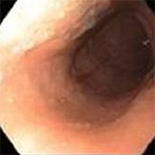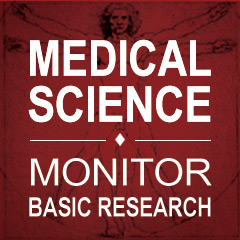Gastrointestinal Pathology Can Also Lead to Nerve Diseases
Abhimanyu Aggarwal, Kirti Basil, Laurence Ufford, Jason Bratcher
Med Sci Case Rep 2018; 5:51-55
DOI: 10.12659/MSCR.911054
Available online: 2018-06-20
Published: 2018-06-20

BACKGROUND:
Pernicious anemia is an autoimmune disorder characterized by presence of anti-parietal cell or anti-intrinsic factor antibodies, leading to atrophic gastritis, which in turn can cause severe vitamin B12 deficiency. This can eventually lead to lesions in the dorsal column of the spinal cord, known as subacute combined degeneration (SCD). We present here a case of SCD affecting an unusual location, in the lower thoraco-lumbar spinal cord.
CASE REPORT:
A 51-year-old woman presented with a 2-month history of worsening bilateral lower-extremity weakness and paresthesia, gait instability, and frequent falls. The physical examination was remarkable for decreased proprioception and sensation in bilateral lower extremities. Laboratory results were notable for macrocytic anemia with hypersegmented neutrophils on peripheral smear, low vitamin B12 level, elevated methylmalonic acid, and positive anti-parietal cell antibody. MRI of thoracic and lumbar spine showed hyperintense T2 signals in the dorsal distal thoracic spinal cord from T10 through L1, consistent with SCD. She was treated with intramuscular vitamin B12, with rapid clinical improvement.
CONCLUSIONS:
This is a classic case of pernicious anemia and SCD but is also very unique due to the location of spinal involvement due to pernicious anemia. This case also highlights the importance of upper-gastrointestinal work-up in a patient with severe B12 deficiency and neurologic symptoms. Early diagnosis is crucial to quickly improve quality of life.
Keywords: Anemia, Pernicious, subacute combined degeneration, Vitamin B 12 Deficiency





